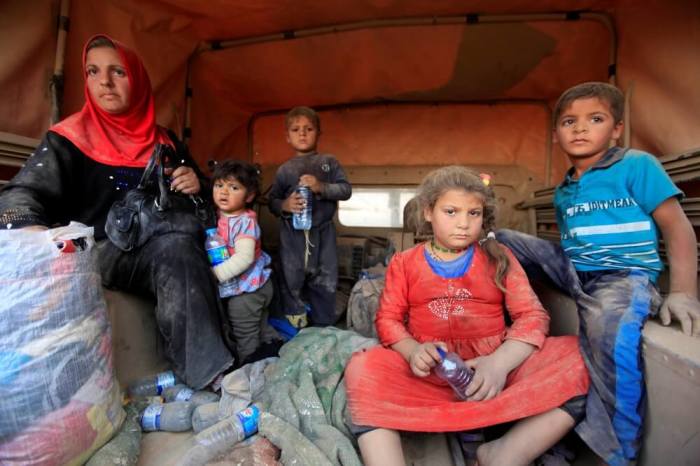Mosul's Liberation Has Begun. Is the World Ready?

It was in June of 2014 that ISIS first arrived in Mosul. Four short days later, the city fell into the hands of the terrorists. Its population, once estimated at over 1.8 million, dwindled as thousands of residents fled. Those who remain are now being held captive by thousands of ISIS fighters.
Now, the long-awaited campaign to liberate Mosul is finally underway. However, just as with previous military operations in both Iraq and Syria, it's the aftermath of liberation that poses the most sobering challenges to the international community.
What is the right way forward, both politically and from a humanitarian aid perspective, in a region of the world that has been in crisis for decades?
While there are no simple solutions for Mosul's liberation, I would like to propose four guiding principles that should be a part of any way forward.
1. We Can't Choose Not to Know.
With Mosul, we have the benefit (if you can call it that) of foresight. Earlier this June, the humanitarian community was unprepared for the vast needs of families that fled from Fallujah when that city was liberated from ISIS. Contrary to initial estimates of 30,000, more than 90,000 people were internally displaced in nearly the blink of an eye. As a result, the refugee camps set up by the UN Refugee Agency (UNHCR) could barely house a fifth of these men, women, and children.
Having survived ISIS occupation, a dangerous escape, disease and starvation — families fleeing Fallujah faced another enemy — the desert. With no shelter, water or food, these families were forced to survive harsh summer heat and exposure to the elements. While the humanitarian community has acknowledged the failures of its response in Fallujah, we now have an opportunity in Mosul, to correct course.
2. We Must Be Honest About the Real Issues.
Iraq is a complicated place. It is home to diverse communities living amongst each other in villages, towns and cities throughout Iraq. The Nineveh Governorate, whose capital is Mosul, is one of the most diverse regions in all of Iraq. Multiple religious and ethnic groups, including Sunni and Shiite Muslims, Christians, Yazidis, Shabaks and other ethnic and religious minorities call this region home, and tensions between these groups can run deep. Too often the humanitarian community only responds to the needs of those communities after they have been affected or destabilized when sustained peace-building initiatives can stave off conflicts years down the road.
This requires that the international community prioritize funding for strategic initiatives focused on preventing conflict and encouraging pluralism at local and national levels. As emphasized in the UN's Sustainable Development Goals established in 2015, we will only achieve a lasting recovery in Mosul (and throughout the region), if peace, stability, human rights and representative governance are established.
3. We Must Expedite Aid by Removing Bureaucracy.
In the case of ISIS in Iraq and Syria, we have an unusual advantage: The US Congress, Secretary Kerry, The UK and EU Parliaments have all formally labeled violence against ethnic and religious minorities in the area as genocide. Leaders must seize upon this special declaration to expedite aid and other assistance so that global bureaucracy doesn't become an impediment.
4. We Must Act Now, Not After.
The international community must reject the modus operandi of only holding emergency policy meetings after a crisis has destabilized a region or people. Planning and resourcing must begin now — not days, weeks or months after.
While exact numbers are notoriously difficult to pin down when it comes to refugee flows, sources on the ground estimate that as many as 800,000-1.5 million Iraqis could be displaced once the city is liberated.
Think about that number for a moment. That is roughly the equivalent of the City of San Francisco's residents losing their homes, almost overnight. It's staggering.
This means that the aftermath of Mosul's liberation could become the single largest and most complex humanitarian response of 2016. Imagine that, a crisis worse than we've — as yet — seen.
How will we look back at our response to the present conflict in Iraq? Will we wonder how the world allowed it to get this bad? Or will we talk about the aftermath of ISIS in Iraq as that region's springboard to religious, racial and political reconciliation?
Mosul was once a diverse city where Muslims, Christians, Yazidis, and even Jews for a time, were able to coexist peacefully. Our response in the coming days could pave the way to restoring and healing a fractured nation.
If the world is ready, this could finally be the beginning of a new Iraq.




























